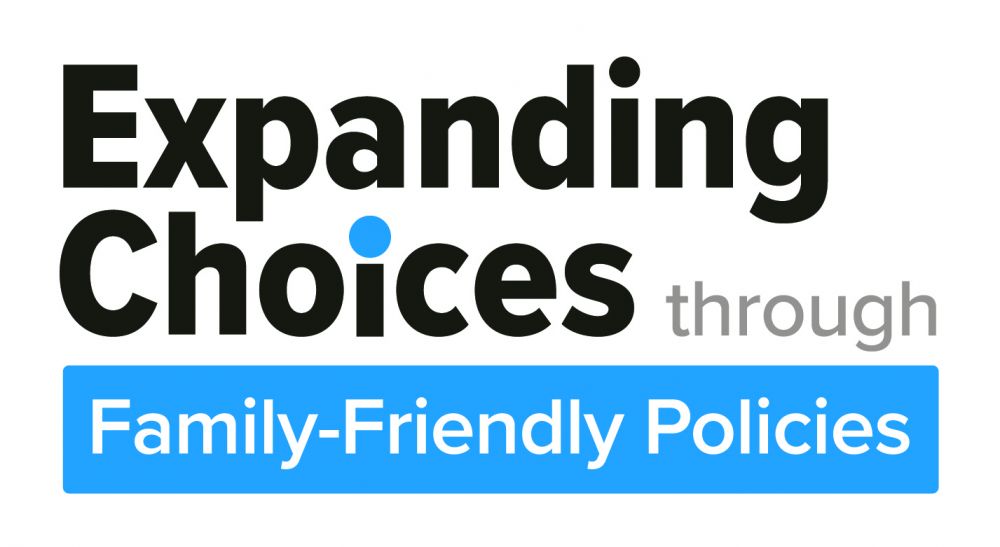The program Expanding Choices Through Family-Friendly Policies advocates for the systematic introduction of gender-responsive family policies into the decision-making process at the level of companies, governments and society, as well as raising awareness of the importance of gender equality amongst the general public. The program is implemented by the Ana and Vlade Divac Foundation in partnership with the United Nations Population Fund (UNFPA) in Serbia and in cooperation with the private sector and the Government of the Republi of Serbia.
The second phase of the regional project will be implemented for the next three years in Serbia, the first phase was successfully implemented during 2019-2023, within which the “Family Friendly Workplace” model was introduced by the following companies: Raiffeisen Bank, KIVO Group, R&T group, Euronews, Premier Energy, Orange and others.
The core of this program is the "Family Friendly Workplace" model, which offers private sector companies additional knowledge and tools needed to create and implement long-term gender-responsive family policies and initiatives. All recommendations are based on the best global practice and adapted to the local context to better see the connection between the Family Friendly Workplace model, gender equality and better business results. The results in the countries where the model has been applied show that such policies are a powerful tool for changing discriminatory gender norms and for establishing a fairer distribution of unpaid housework and caregiving within the family, which allows both women and men equal opportunities in realizing their business ambitions and parenting intention.
The Family Friendly Workplace model is widely applicable in companies of all types and sizes. Small, medium and large companies can implement initiatives and adapt them to their needs and resources.
The "Family Friendly Workplace" model focuses on a broader definition of family that does not necessarily include parents and children (or their own children), but also the different ways in which a family can be organized (both parents, single parent, multigenerational families) taking into account that unpaid work in the provision of care is not limited only to the care of children, but also refers to other life obligations and that it should be provided to all employees.
The model includes strategies, activities and necessary tools for supporting employers to design, plan, implement and monitor introduced gender-responsive family policies, adapted to their needs, priorities and business challenges.
The two main reasons that prevent employers in Serbia from providing additional support to employees are business concerns (possible drop in productivity, efficiency, profits) and lack of awareness of both the importance of a balance between work and private life for employees, especially women, and the potential benefits for employers (satisfaction, loyalty, productivity). However, it should be kept in mind that it is necessary to follow trends and adapt to the market. Namely, Deloitte's 2019 research in 42 countries shows that Millennials and Generation Z prefer companies that align with their values; many say that they will not hesitate to end a professional relationship if they do not agree with the company's business practices and values, if they cannot achieve a balance between private and work life, or due to a lack of opportunities for learning, development and career advancement.
Therefore, the application of the "Family Friendly Workplace" model can have the following benefits for the company:
- Better reputation and status. It is easier to attract and retain employees.
- Reducing the costs of sick leave and absence from work, and thus less employee engagement.
- A greater degree of gender equality which can add more gender balance in the workforce, including at the senior management level and create a more inclusive work environment and culture.
- Increasing engagement, innovation and efficiency among employees.
- A higher level of engagement leads to stronger motivation and greater loyalty among employees.
- Developing competencies and skills: parenting and caring for others develop many transferable skills, such as time and stress management and creativity.
- Public relations and communication is an opportunity to emphasize the values that strengthen the brand. According to experience, companies that are considered more inclusive receive much more media attention.
Key activities in the program include:
- Identification and partnership with companies for piloting the Family Friendly Workplace Model
- Support to companies in the implementation of the family-friendly workplace model through individual meetings, workshops and mentoring
- Enhancing private sector-led advocacy and mutual support among companies on gender-responsive family policies
Activities are carried out by the United Nations Population Fund (UNFPA) in Serbia and the Ana and Vlade Divac Foundation through the project "More opportunities through family-friendly policies" in partnership with the private sector and the Government of the Republic of Serbia, with the financial support of the Austrian Development Agency.
